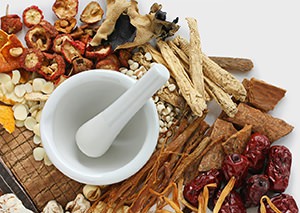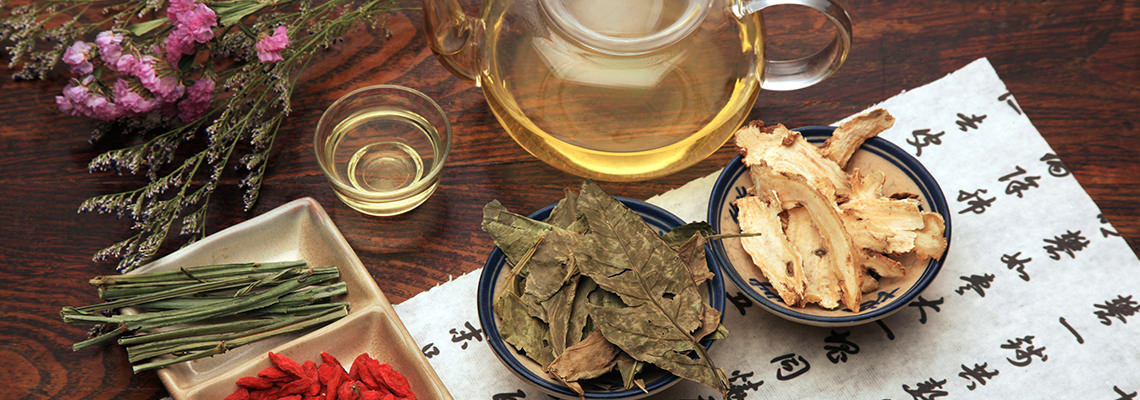Traditional Chinese Medicine
Traditional Chinese medicine is one of the oldest forms of healing. For over 5,000 years, traditional Chinese medicine (TCM) has been connected with nature - the earth and sea, the seasons and climate, and plants and animals. The basic premise of TCM revolves around the theory of elements: wood; fire; earth; metal and water. Each element has corresponding associations with body parts and systems.
TCM holds that the essential life-force, or Qi, is a vital energy in all things, and the quality, quantity and harmonious balance of qi determines the state of health. Various conditions can upset the balance of yin and yang in the body systems. TCM seeks to steer the body back into balance by changing diet and lifestyle, and alternative therapies as acupuncture, Tai Chi and Qigong. Herbs with the qualities of sour, bitter, sweet, salty and pungent, are selected to treat illnesses,. Formulas may contain 4 to 12 herbs or more. The complex system aims at broad spectrum healing.

TCM believes that the human body is a microcosm of the grand cosmic order, and the forces at work in man are the same as those at work in the universe. All world civilizations believed in the vital unity with nature up until the time of modern scientific thought which sees everything, not as one, but as separated and unrelated.

